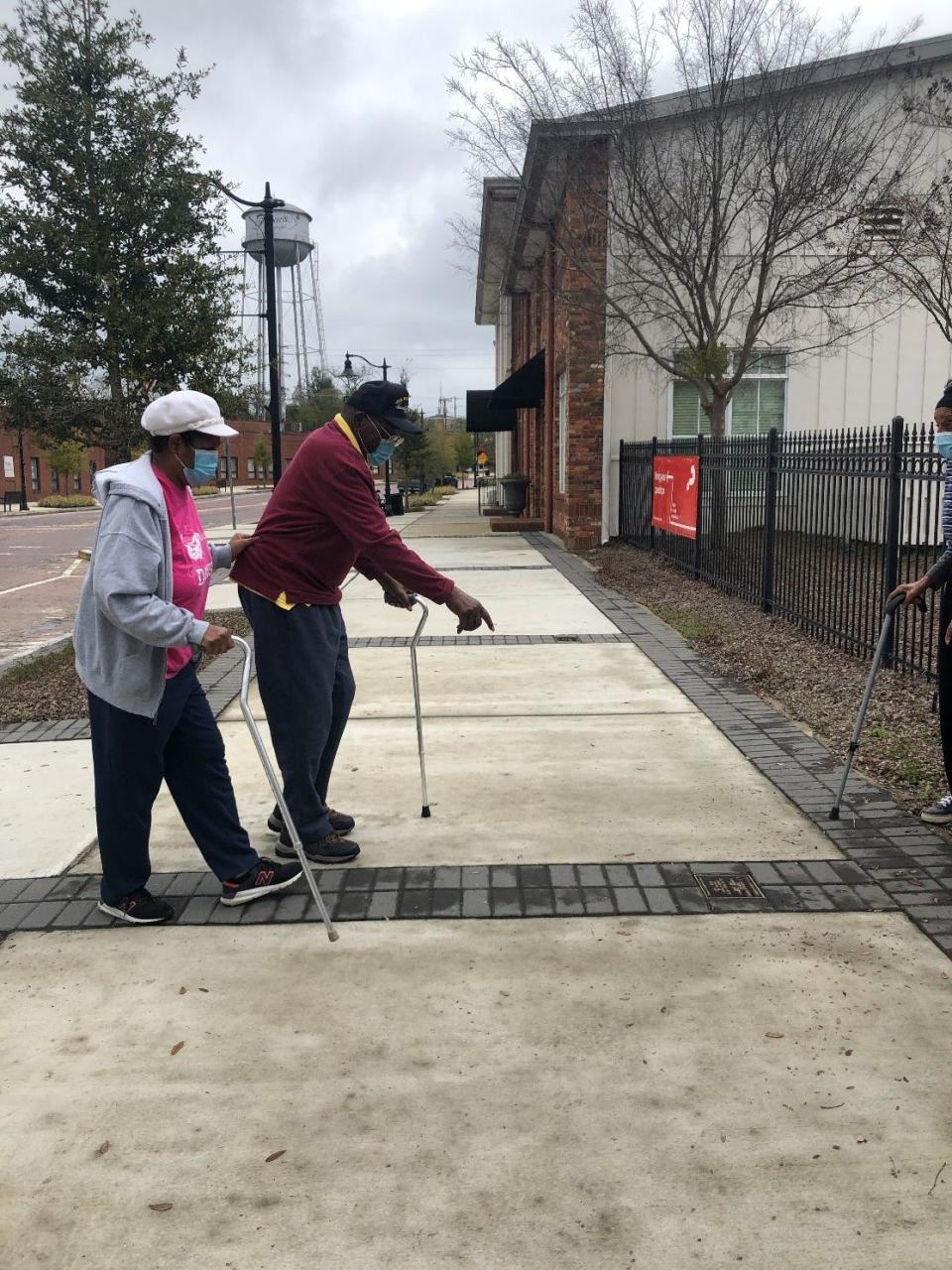Thomasville oral history project dips into 'The Bottom,' seeks community volunteers

The Jack Hadley Black History Museum, Thomasville History Center, and the City of Thomasville are proud to announce the initiation of The Bottom Oral History Project.
The African American business district’s rich history will be recorded and documented to embrace the culture and experiences it provided for the citizens of Thomasville.
Neil Kirkman: Tallahassee history: Remembering Neil Kirkman, father of Florida Highway Patrol | Brand
Burial planned: Lost to family for 79 years, World War II airman coming home to US for Tallahassee burial
Capitol Museum: Old campaigns live again at the Old Capitol | Bill Cotterell
However, we need the support and assistance of the local Thomasville community to illustrate and comprehend this significant area in Georgia.

Brian Davis and Dr. Kurt Piehler, both of Florida State University, are seeking volunteers who are willing to be interviewed about their experiences and connection to The Bottom.
The comfort of the interviewees is a top priority. Interview times and locations are flexible. We also welcome any additional materials, such as photographs, letters and newspaper articles.
One of the desired goals of this project is to allow the citizens of Thomasville and visitors an opportunity to celebrate The Bottom. If you are interested in participating, please contact Brian Davis at briandjr@outlook.com or the Thomasville History Center at 229-226-7664.
Understanding the Black experience
Brian Davis has recent experience conducting interviews regarding graduate student experiences during the COVID-19 pandemic. He has also been affiliated with the “History of Race Relations in Tallahassee, FL” project and he curated the Union Station Central Library Exhibit in Winston Salem, NC.
As an African American pursuing his PhD in History, Brian believes unraveling and exploring spaces like The Bottom is critical to broadening our understanding of the Black experience and its impact on Thomasville from 1940 to 1990. This work will also shed light on the impact of larger political, racial, and social developments in the 20th century.
Thomasville was incorporated in 1831, almost six years after Thomas County was formed in 1825. As one of the last stops of the railroad, Thomasville was accessible from the north and, during the late 1800s, became known as the “Winter Resort of the South.”
At the beginning of this era, Northerners and other visitors came to Thomasville for their health, breathing the pine-scented air as a curative for pulmonary ailments. They were soon joined by friends to enjoy hunting, fishing, and an active social life, including golf, horse racing and bicycling.

Historic district update
The City of Thomasville recently finished an extensive streetscape project that developed a new creative district in the historic area of downtown known as The Bottom.
The Bottom developed shortly after the turn of the 20th century as a predominantly African American and minority-owned business district during the era of Jim Crow segregation.
The Bottom District became a vibrant hub for African American owned restaurants, dry cleaners, barbers, physicians, pharmacies, insurance companies, and more. The Ritz Theater, the namesake of the modern Ritz Amphitheater and Park, was a center for entertainment for the local African American community.

Preserving the historical importance of the area was at the forefront of the project. Sidewalk plaques commemorating some of the historically significant businesses and a commemorative wall were installed to tell the story of The Bottom and its significance to Downtown Thomasville.
The oral histories and photos gathered will be used to finish two remaining projects that will highlight the importance of the area to the African American community. For more information, please visit.thomasvillega.com, by phone at 229- 228-7977.
About the History Center and Jack Hadley museum
The Thomasville History Center was formed in 1952 and opened a museum within the Flowers-Roberts House in 1972. Since then, the Thomasville History Center’s collections have grown to include more than 500,000 artifacts and archival materials and eight historic structures. The History Center, in partnership with the state of Georgia, also operates the historic Lapham-Patterson House. For more information, please visit thomasvillehistory.org.
The Jack Hadley Black History Museum educates individuals about the history and culture of African Americans, locally and nationally. Historian James “Jack” Hadley has preserved over 5,034 African American artifacts. He has focused on Thomasville’s first black achievers, state and national achievers that commemorate their lives and accomplishments.
These thousands of collectible artifacts, documents, books, prints, posters and photos chronicling Black history can be found on the former campus of Douglass High School in Thomasville, an all-black school that was segregated from 1902-1970 located in the Dewey City Community. The Douglass High School Alumni Association, Inc. now owns the facility.
In 2018, the museum took ownership of Thomasville, Georgia’s only green book location, the Imperial Hotel (1949-1969), with plans to restore and preserve the building. The Jack Hadley Black History Museum is owned and operated by Jack Hadley Black History Memorabilia, Inc., located at 214 Alexander Street, and is a nonprofit organization founded in 1994. Learn more at jackhadleyblackhistorymuseum.com, by phone 229-226-5029.
Never miss a story: Subscribe to the Tallahassee Democrat using the link at the top of the page.
This article originally appeared on Tallahassee Democrat: Black history project seeks volunteers for oral history of The Bottom

